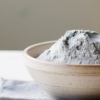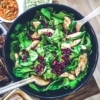Anxiety and Food
Anxiety is becoming more common at the moment with so much uncertainty and fear surrounding us.
Dietary triggers for anxiety include nutritional deficiencies (B vitamins, magnesium, zinc and omega 3’s), low blood sugar, high caffeine, and high intake of sugary, processed foods.
It’s important to eat regular, nutritious meals with plenty of protein. Focus on a diverse, balanced whole-food diet that is supportive for anxiety. I’ve listed below some examples of foods from different food groups to help you build a diet that will support your body and mind.
Protein sources include: eggs, seeds, nuts, quinoa, oats, poultry, fish, meat, legumes, and lentils. You should aim for a palm-sized portion in each main meal.
Magnesium rich foods: green veggies – spinach, watercress, kale, chard, collards and parsley. Enjoy a handful of almonds or cashews and a square or two of dark chocolate (80% cacao). Include raw cacao powder in your snacks or meals.
Foods rich in B vitamins: brown rice, whole-grains, quinoa, buckwheat, steel-cut oats, nuts, seeds, meat, leafy green veggies, and eggs are good sources.
Awesome foods for zinc: oysters, seafood, pumpkin seeds, sunflower seeds and grass fed beef or chicken.
Omega 3 foods: oily fish (salmon), linseeds / flaxseeds, walnuts, chia seeds and hemp seeds.
Stay hydrated with plenty of water and herbal tea – try passionflower, lavender, lemon balm, turmeric, or chamomile tea.
Foods you are better off ditching include fried foods and take-away, sugar, alcohol, coffee, energy and soft-drinks, fruit juices, white carbohydrates (bread, pasta, pastries), and processed foods.
It’s important to know that hormone imbalances, sleep, stress, gut health and liver health all play a part in anxiety. If your anxiety is getting out of control, reach out. You may need some herbal or nutritional support or further investigations.





